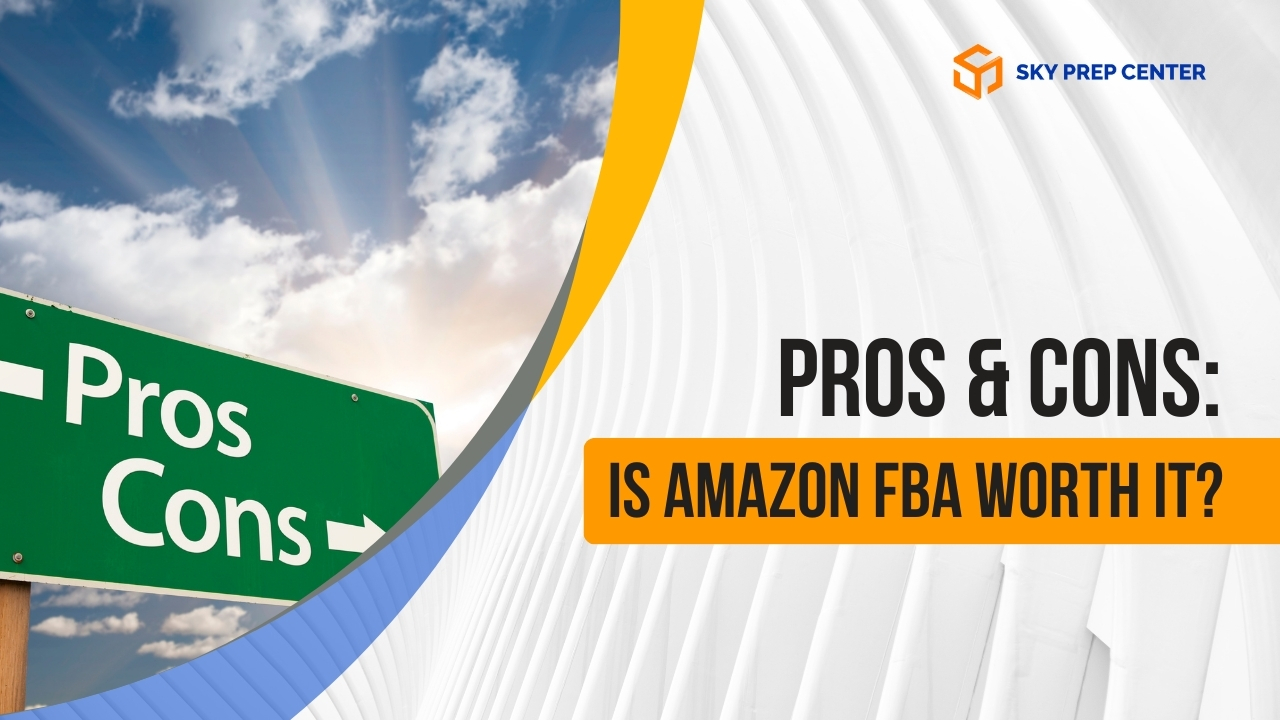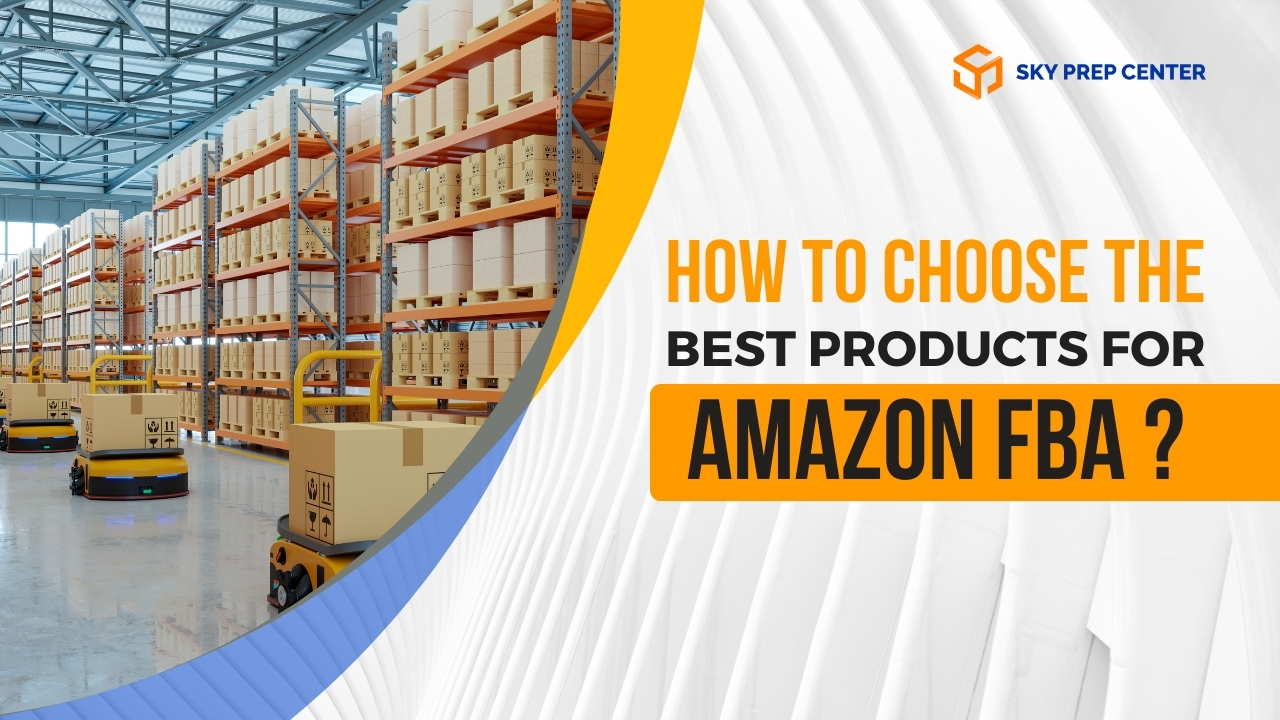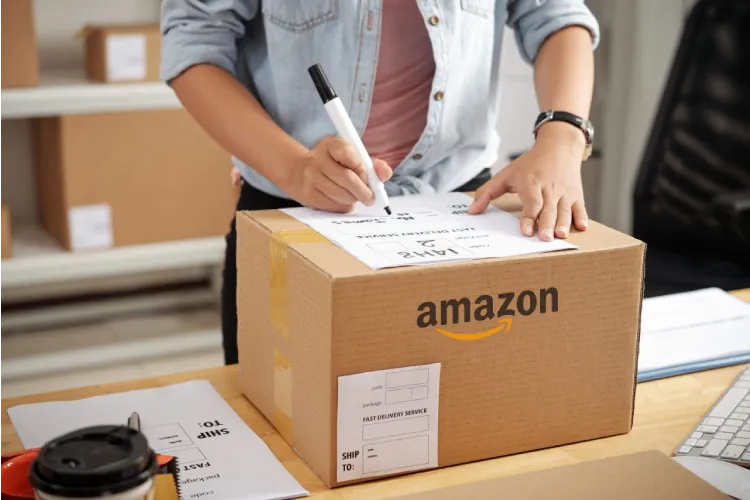Curious about whether fulfillment by Amazon (FBA) is the right choice for your business? Understanding the pros and cons of FBA can help you make an informed decision. Let’s dive into the key benefits and potential drawbacks of using FBA to streamline your order fulfillment.
Understanding How Amazon FBA Works
Before diving into the pros and cons of Amazon’s FBA program, new sellers must understand what an FBA is and how it operates.
Amazon FBA, or fulfillment by Amazon, is a service that allows businesses to leverage Amazon’s extensive warehouse network for their products. By enrolling in FBA, sellers hand over the order fulfillment process to Amazon, including warehousing, shipping, handling returns and refunds, and managing customer service. This means sellers can focus on growing their business while Amazon handles the logistics.
There’s no limit to the number of products you can list with FBA, and the program is particularly advantageous for wholesale sellers dealing with bulk orders. FBA simplifies the process by managing multiple SKUs and order placements, making it easier to scale.
Here’s a quick overview of how Amazon FBA works:
- Deliver your goods to an Amazon warehouse.
- Amazon securely stores your inventory in its warehouse.
- When customers purchase from you, Amazon handles all aspects of the transaction.
- Amazon packages and ships (fulfillment) the products directly to the customers.
- Amazon manages customer service, including returns and refunds.
- Your earnings are deposited directly into your bank account
Amazon handles all shipping, customer communication, and payment processing. Your main task is to keep your inventory stocked. Remember, running out of stock can lead to missed sales, as Amazon can’t fulfill orders for out-of-stock items.
Costs Associated with Amazon FBA
Understanding the costs involved in FBA is crucial. Since Amazon takes on a significant portion of the workload, their service comes at a price.
There are two main types of costs with FBA:
- Inventory Storage Costs: This fee covers the space your products occupy in Amazon’s warehouses. For small to medium-sized businesses, this can be a cost-effective option compared to renting or buying your own storage.
- Fulfillment and Shipping Costs: These fees cover the picking, packing, and shipping of your products. Amazon’s infrastructure and manpower help ensure your orders are fulfilled efficiently, but it’s important to assess how these costs fit with your business model.
By understanding these costs and processes, you can better evaluate if Amazon FBA is the right fit for your business needs.
Pros of Amazon FBA
In the Amazon marketplace, there’s little room for error. A single poor delivery or fulfillment issue can lead customers to avoid your business. That’s why many sellers turn to FBA for their logistics needs—Amazon’s service helps meet customer expectations while reducing the risk of mistakes.
However, understanding the basics of FBA isn’t enough. You need to weigh both the advantages and disadvantages of joining the program.
First, let’s sift through the advantages of Amazon FBA for sellers.
- Simplified Fulfillment: One of the biggest advantages of FBA is the ease of order fulfillment. Amazon takes care of storage, packing, shipping, and even customer service, allowing you to focus on other aspects of your business. This hands-off approach can significantly reduce your workload.
- Fast Shipping and Prime Eligibility: FBA products are eligible for Amazon Prime, which means customers get access to fast, free shipping. This can boost your sales and attract more buyers who are looking for quick delivery options.
- Scalability: FBA is designed to handle varying volumes of inventory, making it easier for you to scale your business. Whether you’re dealing with a surge in orders or seasonal fluctuations, FBA’s infrastructure supports your growth without needing to invest in additional warehousing or staff.
- Global Reach: With FBA, you can expand your market reach beyond domestic borders. Programs like remote fulfillment allow you to sell your products in Canada, Mexico, and Brazil using your US inventory, while Amazon Export helps you reach global customers.
- Streamlined Returns and Customer Service: Amazon manages returns and customer inquiries for FBA orders, which can save you time and improve customer satisfaction. Their well-established system ensures a smooth process for handling returns and resolving issues.
Cons of Amazon FBA
While many sellers have found great online sales success with FBA, some still need to embrace the program fully. Here’s why:
- Costs: While FBA offers many conveniences, it comes with its own set of costs. Fulfillment fees are charged per unit, based on size and weight, and monthly storage fees are assessed for the space your inventory occupies. Additionally, there are charges for long-term storage of items held in Amazon’s warehouses for more than 181 days.
- Less Control Over Fulfillment: Using FBA means you’re handing over control of inventory management and order fulfillment to Amazon. This can lead to potential issues with stock levels, packaging, and shipping accuracy that may not align perfectly with your business standards.
- Competition and Fees: FBA products compete directly with other sellers in Amazon’s marketplace, which can affect your visibility. Moreover, the fees associated with FBA can add up, especially for low-margin products, potentially impacting your profitability.
- Complex Inventory Management: Managing inventory across multiple sales channels can be challenging. While FBA supports multi-channel fulfillment, keeping track of stock levels and coordinating shipments from various sources requires careful planning and oversight.
- Restricted Categories: Not all products are eligible for FBA. Certain items, like hazardous materials or those with expiration dates, may not be accepted. Additionally, some categories may have specific requirements or restrictions that could affect your ability to use FBA for all your products.
Conclusion
Deciding whether Amazon FBA is the right fulfillment solution for you involves weighing these pros and cons. FBA offers significant benefits in terms of efficiency, scalability, and reach, but it also comes with costs and challenges that you’ll need to consider. By understanding these factors, you can make a more informed choice about how to leverage FBA for your business needs.
At Sky Prep Center, we’re here to help you navigate the complexities of FBA and optimize your fulfillment strategy. If you have any questions or need assistance with FBA prep and management, feel free to reach out to us.



